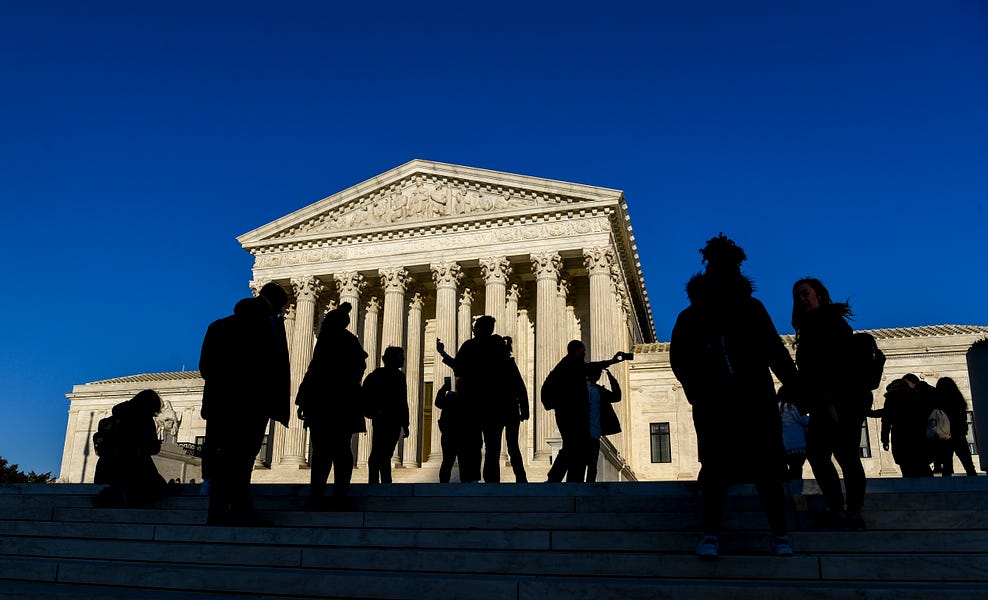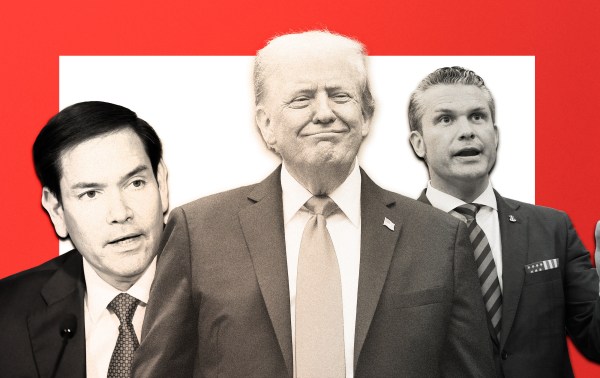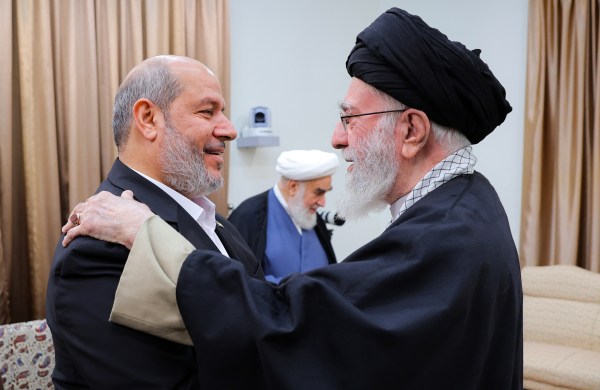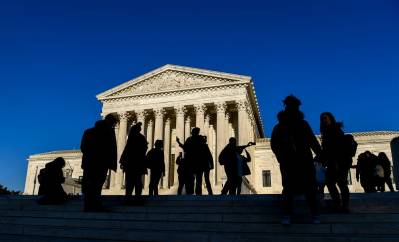In the run-up to the 10-year anniversary of the Supreme Court’s decision in Citizens United v FEC, law professor Richard Hasen wrote a thorough article for Slate that concluded “the decade of Citizens United has been a bad one for democracy.”
But in a surprise twist, spending by presidential campaigns has actually decreased since the Supreme Court’s landmark First Amendment decision and the side that spent less won in 2016. So perhaps the better question 10 years on is, did Citizens United matter?
The history of the case is pretty straightforward. Citizens United, a non-profit corporation, produced a film called Hillary: The Movie ahead of the 2008 primary. It was a highly critical documentary, and federal law at the time prohibited corporations and unions—with a notable exemption for media corporations—“from using general treasury funds to make direct contributions to candidates or independent expenditures that expressly advocate the election or defeat of a candidate.”
The case reached the Supreme Court two years later, and on January 21, 2010, Justice Kennedy, writing for the majority, held that the government cannot prohibit individuals or corporations from independently expressing their opinions on candidates and elections, which included contributing money for that speech. He noted that “governments are often hostile to speech, but under our law and our tradition it seems stranger than fiction for our Government to make this political speech a crime” and that “when Government seeks to use its full power, including the criminal law, to command where a person may get his or her information or what distrusted source he or she may not hear, it uses censorship to control thought.”
The result of the case was a new type of election entity: the super PAC. Before Citizens United, there were 527s. (Yes, yes, technically, all PACs are 527s because it’s just an IRS designation, but it was also a term of art back in the day.) Swift Boat Veterans for Truth is an example of a 527 you may remember from the 2004 election. These were “issue advocacy” organizations run independently of candidate campaigns that were prohibited from “expressly advocating” for the election or defeat of specific candidates and from any mention of candidates within a window before an election.
Citizens United killed off the “express advocacy” prohibition and the election windows. This means super PACs, just like their 527 predecessors, can accept unlimited contributions from both individuals (currently capped at $2,800 per election for a candidate) and contributions from corporations (still prohibited for a candidate). But also like a 527, super PACs cannot coordinate their communications with a candidate’s campaign and all of their expenditures have to be entirely independent. (And if you’re thinking a lot might turn on what those words “coordinate” and “independent” mean, you are ready to go to law school.) Notably, its not considered coordination for candidates to tell supporters about a super PAC (this is where we get the phrase “authorized super PAC”) but candidates cannot solicit contributions for it. A fine line, indeed.
As a result, super PACs are all over the place. Some have tried to become an arm of the campaign--finding creative ways to help a specific candidate while remaining independent as we saw with groups supporting Jeb Bush and Carly Fiorina. (Disclosure: I worked for Carly Fiorina’s 2016 presidential campaign.) Others have raised millions of dollars while spending very little of the money to help any campaign. The Trump re-election effort has run into the latter—as of last month, close to $50 million has been raised by unauthorized super PACs claiming to support the president’s re-election efforts but as a spokeswoman for the only super PAC endorsed by Trump told Politico, “there’s nothing we can do to stop them…[t]his is a problem for the campaign, as well as us, as well as for the RNC.”
But Citizens United has also become a shorthand for corruption on the left. In 2015, a headline on Salon summarized: “This SCOTUS destroyed America: How Citizens United is ruining more than our elections.” By July 2019, seven Democratic presidential candidates—including Elizabeth Warren, Pete Buttigieg, and Amy Klobuchar—had committed to making campaign finance reform legislation their first legislative priority if elected.
But despite all of the attention, has the role of super PACs dramatically shifted the electoral landscape for candidates? Let’s look at arguments for both sides.
No It Hasn’t.
Money doesn’t win elections: The Clinton and Trump campaigns spent nearly 30 percent less than the Obama and Romney campaigns in 2012. With outside groups and super PACs included, the Clinton team raised about $1 billion only to lose to Trump’s mere $600 million. And that’s just the general election. Jeb Bush and Right to Rise spent $130 million before he suspended his campaign without having won a single primary. By the end of 2015, Ted Cruz ($90 million), Marco Rubio ($79 million), Ben Carson ($67 million), Scott Walker ($39 million), John Kasich ($25 million), Carly Fiorina ($24 million), Chris Christie ($23 million), and Rand Paul ($22 million) and their super PACs had all raised more than Donald Trump ($21 million). As Trump campaign aide Michael Caputo said at the time, Trump “spent the least amount of money of any of the competitive primary contenders that he beat so badly." After 2016, super PAC donors have to be wondering whether their money is making any difference at all.
Campaign finance laws still protect incumbents: Campaign finance laws are passed by members of Congress almost all of whom will be running for re-election. It would be very strange, then, if these laws in any way helped their opponents. And, of course, they don’t. Incumbents benefit enormously from fundraising limits because they already have a ready-to-tap donor base. Basically, they start from the 50-yard line for each election. But when Mr. Smith wants to go to Washington, he has to invest a staggering amount of time to raise money in $2,800 chunks. Time that would otherwise be spent meeting voters and getting his name out there. It’s why incumbents most fear a self-financing opponent. Incumbents’ biggest advantage—time and money—both instantly disappear. So did super PACs have an effect on incumbent re-election rates either way? Looking at the four elections cycles before (House 93 percent, Senate 86 percent rates of incumbent re-election) and after (House 93 percent, Senate 86 percent) Citizens United, the answer is a resounding … nope.
Super PACs aren’t efficient at helping candidates: Very few donors like to see their money lit on fire. But, for example,the FCC has a regulation that effectively caps advertising rates for a candidate’s campaign organizations far below market rate. This means that campaigns are a far, far more efficient vehicle for buying political advertisements than PACs. In 2015, Reuters found that in just over a week the Bush campaign spent $41,000 to run 44 ads in New Hampshire and that Right to Rise spent nearly $140,000 for “just 31 spots on some of the same shows.” Given that television advertisements are still a major line item in any large campaign budget, a super PAC is throwing away 70 cents on the dollar in some cases. Yikes.
On the Other Hand …
Money does matter … down ballot: Of the $6.5 billion total spent during the 2016 election, more than $4 billion of that was spent on congressional races. That is slightly less than 2008 or 2012 (adjusting for inflation) but is close to twice as much as the presidential race. And it’s no surprise that super PACs are used extensively in down-ballot and off-cycle races. There is plenty of reason to believe that the effect of spending—both by campaigns and super PACs—has a much more dramatic effect in non-presidential contests in which candidates are not well known. For example, there is dramatically less media coverage to inform voters about the races, which included over $8 billion in earned media (read that as “free airtime”) for Clinton and Trump in 2016. This all means that paid advertisements, door knocking, and direct mail become a main source of information. Those things take money and a super PAC can often fill the role of a shadow campaign in those cases.
Super PACs aren’t independent: Family members can run them. Operatives can set up obscure websites or Twitter feeds that are technically public to relay information between the campaign and the super PAC. Staff from the super PAC can quit and start working at the campaign the next day. And a super PAC’s donors are publicly disclosed. A super PAC’s independence from a candidate was supposed to prevent the appearance of quid pro quo corruption because “[t]he absence of prearrangement and coordination . . . alleviates the danger that expenditures will be given as a quid pro quo for improper commitments from the candidate.” But candidates are very aware of who is supporting these outside efforts and talk to their super PAC donors on a regular basis. Internally, these donors are treated like direct donors to the campaign. Candidates, you could say, are shocked, shocked to find that fundraising is going on in these super PACs.
They undermine faith in democracy: In the months following the Citizens United decision, 80 percent of Americans opposed the ruling. In 2018, 77 percent said there should be limits on the amount of money individuals and groups can spend on campaigns. About 84 percent think money has too much influence in political campaigns and 65 percent think wealthy Americans have more of a chance to influence the election process. And there’s plenty more where that came from. So much so that one survey from the University of Maryland found that 75 percent—including both Democrats and Republicans—backed a constitutional amendment to overturn Citizens United.
In fact, it is hard to find political operatives or election lawyers—the very people who have the most financially to gain from this brave new super PAC world—who defend the campaign finance status quo as a matter of policy.
Of course, it is NOT hard to find lawyers to support the legal basis for Citizens United. Brad Smith, former chairman of the Federal Election Commission and one of the nation’s leading authorities on election law and campaign finance, noted that “there is both more to and less to Citizens United than meets the eye.” On the “less” side, he pointed to the fact that for-profit corporations are “a blip in total political spending—making up around 5-6 percent or less. And that “the great bogey man of "dark money"—spending by organizations such as Planned Parenthood and the Chamber of Commerce, that don't specifically reveal their funding sources… has never amounted to even 5 percent of federal political spending” since Citizens United.
But, Smith adds, “Citizens United matters a great deal, nonetheless…[because] the principle of Citizens United—that the government cannot ban certain speakers from the marketplace of ideas simply because it doesn't like who they are—is at the core of the First Amendment.” And for that reason, he believes it “has headed off a great deal of bad legislation, and is a crucial part of our protection of free speech.”
So What Happens Next?
No limits, full disclosure. It may sound like a new type of poker game, but this idea would kill candidate-supporting super PACs overnight. Congress could lift the individual contribution limit and require campaigns to report all donations online within 24 hours of receipt. Sounds like a recipe for disaster? As it happens, 11 states already allow unlimited contributions from individual donors, including Texas, Pennsylvania, and Virginia. But, see, incumbent protection above.
Gift tax. The idea here is to treat donations to super PACs over the federal limit like a “gift” that is taxed by the IRS and then use that money to publicly finance candidates who agree voluntarily to abide by certain limits. Currently 14 states have some limited form of public campaign financing, including Massachusetts, Florida, and New Jersey. But this only really works when both sides participate—and that means both sides have an incentive not to do so a la a campaign finance battle of wits.
Democracy dollars. This is the idea that every citizen would get some amount of money (most likely in the form of a tax break) to give to the candidate of their choice. The idea being that, according to Andrew Yang, “these Democracy Dollars would, by the sheer volume of the U.S. population, drown out the influence of mega-donors.” But, fair warning, Seattle voters passed a measure like this back in 2015 funded by an increase in real estate taxes for their municipal elections but according to the Seattle Times, “outside influence PACs — mostly business and labor — have raised more money to pour into the 2019 council elections than was spent by outside committees in all previous council races combined.” Money begets money, it seems.
Overturn Citizens United at the Court. In April 2016, the Atlantic published a piece that advocated “a long process of smaller, incremental steps” to overturn Citizens United at the Court a la the gun rights and marriage equality fights of yore. This was notably before Justices Kavanaugh and Gorsuch—both staunch First Amendment advocates—joined the court. Asked about the likelihood of finding 5 votes on the court to overturn Citizens United in the next decade or so, Texas Solicitor General Kyle Hawkins said, “I don’t see that happening. The current Justices have demonstrated a strong commitment to the First Amendment’s fundamental free speech guarantees. We’re not likely to see a majority dilute the Constitution’s protection of core political speech.”
Pass a constitutional amendment. Democrats in the House and Senate have introduced an amendment to supercede the Court’s reliance on the First Amendment. You can read it here. But as Chris Gober, former general counsel at the National Republican Senatorial Committee and president of the Gober Group, offered, “a constitutional amendment overturning the decision would not significantly reduce the role of money in politics or cure the other perceived ills of our nation’s campaign-finance system.” As he points out, “the reality is that we saw a greater increase in total election spending from 2000 to 2008 (36 percent) than we did from 2008 to 2016 (12 pecent)…[and] business corporations and labor unions are each responsible for less than 6 percent of the total funds contributed to super PACs.” So for those looking for big, structural reforms to political campaigns, “you had better look beyond Citizens United to find your peace,” he says.
Photograph of the Supreme Court building by Jonathan Newton/The Washington Post via Getty Images.







Please note that we at The Dispatch hold ourselves, our work, and our commenters to a higher standard than other places on the internet. We welcome comments that foster genuine debate or discussion—including comments critical of us or our work—but responses that include ad hominem attacks on fellow Dispatch members or are intended to stoke fear and anger may be moderated.
With your membership, you only have the ability to comment on The Morning Dispatch articles. Consider upgrading to join the conversation everywhere.